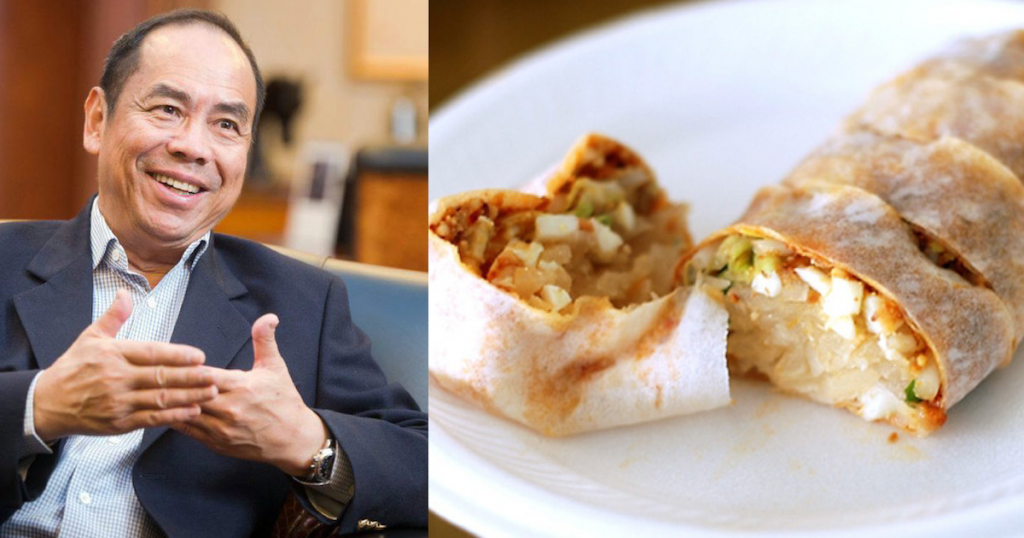Earlier this month, business magazine Forbes released its 2020 Forbes Singapore Rich List, which highlights the top 50 richest in Singapore.
Sam Goi, chairman of frozen foods manufacturer Tee Yih Jia Foods (TYJ), ranked 18th in the list.
As of 4 September 2020, his net worth stands at S$2.56 billion.
The 71-year-old is also the chairman of property development GSH Corporation, where he holds nearly 60 per cent stake.
However, he is better known as the ‘Popiah King’ — TYJ is the world’s largest manufacturer of the soft, thin paper-like crepe that is used to make spring rolls.
Building The World’s Largest Manufacturer Of Popiah Skins
In 1955, Sam arrived in Singapore on a small boat from Fujian, China at just six years old.
According to Forbes, he dropped out of high school to work in his father’s grocery store. He later got into frozen foods when he bought over a struggling food unit, which was the then-TYJ.
TYJ started out in 1969 as a “small, semi-mechanised factory” producing spring roll pastry for the Singaporean market.
Armed with S$450,000 borrowed from a bank and his father, he set out to overhaul the underperforming food company in 1977.
In three years, he re-engineered the business by automating its manufacturing processes and increased production from 3,200 popiah skins a day to 25,000.
The tycoon also brought in technicians to design the world’s first automated machine for making popiah skins.
By 1980, TYJ was producing the spring roll pastries at an astounding speed of 30 million a day.
The company then started branching out to other products like flatbreads and samosas.
Today, the company has a portfolio of popular brands like Spring Home, Happy Belly, Masterchef and Ryushobo ramen.
It is also shipping its products all over the world, with “distribution networks in over 80 countries”.
Besides TYJ, he also took advantage of the property boom in China in the early 2000s, and acquired land when property prices were still modest.
In 2012, he acquired a majority stake in GSH.
Not Slowing Down
The billionaire is now planning to branch out into meat substitutes and other special-diet foods.
This signals a continued zest for innovation as there is a growing interest in plant-based and lab-grown meats, with startups like Shiok Meats raising millions in funding to develop their products.
According to Forbes, Sam has plans to play angel investor to food startups, like what he did to TYJ in 1977.
His enterprising mindset is probably one of the greatest reasons for his successes.
Back in 2015, Sam told The Financial Times that he had “only just begun”, and was “still excited by the opportunities present.”
“Every generation will have its set of challenges and constraints. Therefore, from every generation will emerge entrepreneurs to solve these problems and create wealth and wellbeing for the society of their time,” he said.
Featured Image Credit: Forbes, Asia Society
